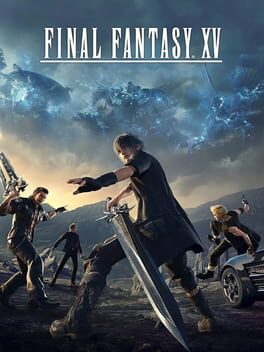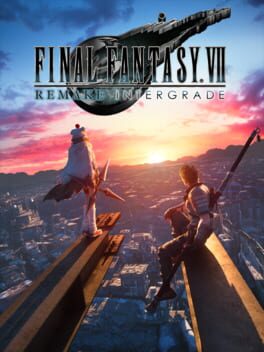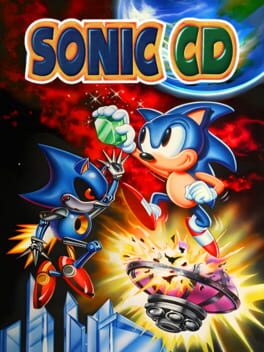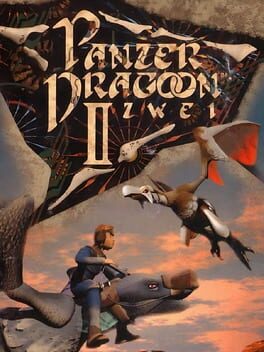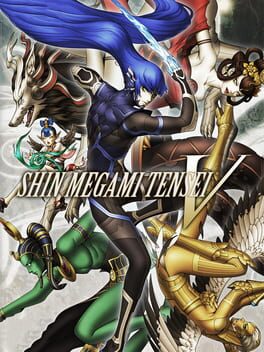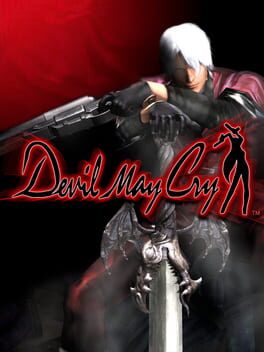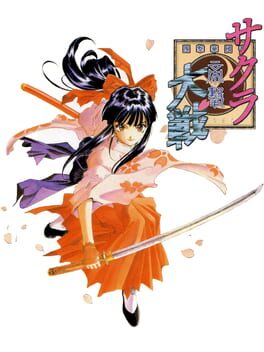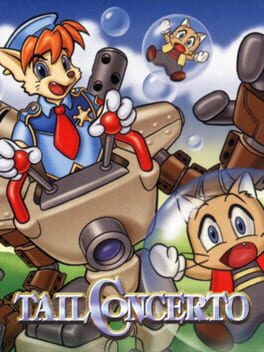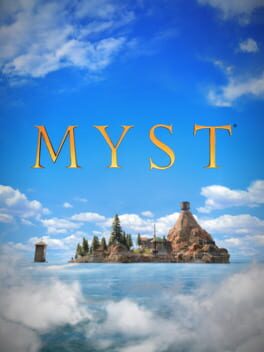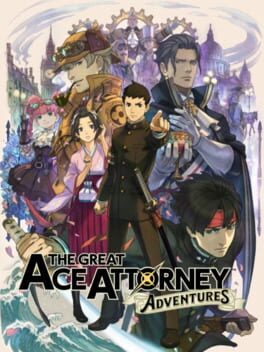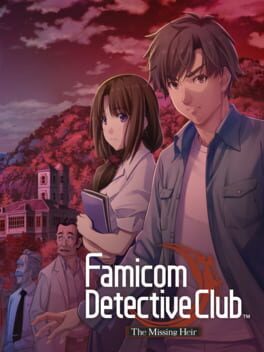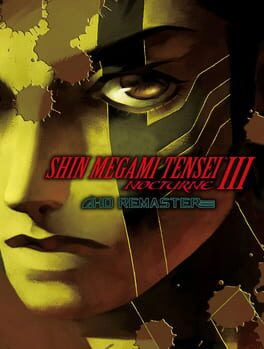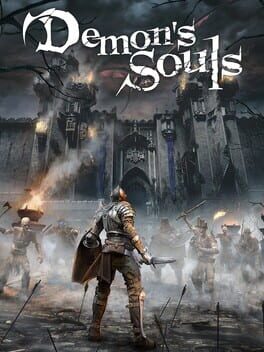OhPoorPup
2019
It's incredible to see a clunky point-and-click masquerading as an action game translated to omega-budget AAA and maintain a great deal of its charm and appeal. Easily the best AAA game of the 00s, unless I'm just completely blanking on something. It would be the best game of its release year, but Sekiro: Shadows Die Twice outclasses it in most respects.
2020
Bland and inoffensive, a pretty-fun showcase for some controller features that are already falling to the wayside, a sustained reminder that PlayStation used to be a more innovative, risk-taking, artful and exciting venture than they are now. The game's weird insistence on the t-rex tech demo thing is cool and funny
2016
Despite its reputation, I picked this up because I'm recovering from a surgery and needed something basically brain dead, something low-key to just hang out with. I have a severe aversion to open-world design (it even tanked Elden Ring for me earlier this year) and was really surprised to find myself enjoying FFXV's take on the form, which is largely non-committal and vibes-centric. I was really grooving with the FFXI-ness of the game, from its generally passive open spaces to its combat that doesn't ask much of the player beyond specific things, to its general hangout-itude. And then Chapter 9 came around and it became apparent that everything after that point was rushed, misguided, or maybe a bit of both. I am usually the person decrying overfocus on story and pleading for more sparseness and room to breathe, but god almighty I would've killed for a 30 minute cutscene to flesh out some of this stuff. By the last chapter I was begging for it to be over, and the ending was basically incomprehensible. Went from something I was shocked to find myself enjoying to being a nightmare in a very short span of time. Here's hoping XVI's better.
I adored Final Fantasy VII Remake more than, frankly, any AAA game since the PlayStation 2, and a lot of that was in its looseness with itself; its willingness to be light and fun and exuberant and goofy. There's plenty of that here, and this little chapter served as a pleasant reminder of how charming this version of Midgar and its characters are; honestly this comes off more than anything as "hey don't you miss this game? why not give it another run?" and the notion is tempting! I was surprised to find that while FF7R's "kingdom hearts bullshit" was charming and self-critical (coming off as a meta-level awareness of Nomura's broader influence in the aftermath of FF7, and providing a venue for introspection about FF7's own overblown cultural heft), the introduction of Dirge of Cerberus material and its accompanying melodrama is somewhat exhausting. The resolution of Yuffie's plot feels rushed and unearned, and the segue back into the main plot is perfunctory and self-defeating; a glimpse at a much more compelling melodrama waiting just over the horizon. Plot quibbles aside here, FF7R remains one of the smartest AAA games in recent memory, and the Sonon/Yuffie pairing is basically an elaborate excuse to further press into Final Fantasy XIII's combat system's raison d'être, simulating the platonic ideal of watching an action anime. It's neat! Further stripping out the player growth mechanics only highlighted how woefully little wiggle room there is in the base game, foregrounding for me the hopes that FF7R2 will have an open field with some kind of encounters mechanism. FF7R might be an incredible AAA game but it is, tragically, not really a JRPG in any meaningful way.
1993
review placeholder
Play # 17, Clear #1
SCORE: 788350
E1: 98.9%
E2: 95.6%
E3: 94.1%
E4: 95.0%
E5: 90.8%
TOTAL: 94.9%
Beautiful, touching, profound, visually overwhelming, overall an absolutely perfect video game. I will be beating this many times, I can see myself going for a 100% shot down. I love Saga to death but I can understand and sorta relate to the argument that Zwei is the series' true hidden gem, given Saga and Orta's ubiquity.
SCORE: 788350
E1: 98.9%
E2: 95.6%
E3: 94.1%
E4: 95.0%
E5: 90.8%
TOTAL: 94.9%
Beautiful, touching, profound, visually overwhelming, overall an absolutely perfect video game. I will be beating this many times, I can see myself going for a 100% shot down. I love Saga to death but I can understand and sorta relate to the argument that Zwei is the series' true hidden gem, given Saga and Orta's ubiquity.
2021
I played through this on Hard difficulty, runtime about 70 hrs. The world-traversal is a revelation, and the combat is complex and engaging. I spent the better part of that 70 hours enthralled, but by the time I approached the third act, it became apparent that the thin plotting and uneven characterization was going to be amended in the final moments of the game, and even then only barely. I had some assumption that the complaints of "no plot" online were being made by SMT IV-heads, clamoring for that game's incessant interruptions and didacticism, but no. This game is VERY thinly plotted and it does not wear it well. Despite Persona-heads' protestations, Shin Megami Tensei, by which I mean Nocturne, is not a terribly sparse game. There are plot beats that fill the time and the games progress as you'd expect any JRPG to. But it's very clear SMTV's open-ended world traversal and more freeform structure posed a problem for the team in terms of narrative pacing, and they chose the lighter touch there. Maybe more plot asides would grate as they do in 4! I don't know! But there is woefully little to hang on in these characters or their beliefs, particularly the Chaos faction, and the game feels less complete as a result.
I look forward to playing this game again in the future without the weight of expectation bearing down because it is one of the very best JRPGs I have ever played. The problem is, it's a sequel to the very best JRPG I have ever played.
I look forward to playing this game again in the future without the weight of expectation bearing down because it is one of the very best JRPGs I have ever played. The problem is, it's a sequel to the very best JRPG I have ever played.
2001
My assumption going into this from playing various Platinum games (and just PS2 games in general) was that it would be a level-based, on-rails affair. Shocked and astounded to see that it holds close to its Resident Evil roots, with persistent and freely-navigable spaces. The player-driven engagement with secret missions and some of the weapon pickups make this game feel really alive and exploratory in a way I have never felt from its descendants. The voice acting is charming and cute, and the plotting is impressively spare.
The combat is pretty impressive in how flexible and dynamic it is, but I tapped out during the first Mundus fight, whose circular arena and Dante-always-points-towards-Mundus attack restrictions make for disproportionate frustration. Still, really really charmed by this and could see myself doing a more involved playthrough. On to DMC3!
The combat is pretty impressive in how flexible and dynamic it is, but I tapped out during the first Mundus fight, whose circular arena and Dante-always-points-towards-Mundus attack restrictions make for disproportionate frustration. Still, really really charmed by this and could see myself doing a more involved playthrough. On to DMC3!
1996
A delightful multimedia extravaganza, every animation meticulous, every lip-sync aligned perfectly with dialogue, all voice actors giving it 100%. Wonderfully written, charming adventure/minigame segments, and lavish beyond anything we in the west would've been seeing in 1996. An absolute treasure from top to bottom.
....except that combat. I actually stopped playing after getting two game overs on the next-to-last combat segment. I am generally not a tactics fan in general, but I get the feeling that this combat is especially perfunctory and under-baked. I'm sure later games in the series refine and complicate things in more satisfying ways, and I would give anything to be able to play them.
In all ways (except combat) the absolute apex of Games as Multimedia.
....except that combat. I actually stopped playing after getting two game overs on the next-to-last combat segment. I am generally not a tactics fan in general, but I get the feeling that this combat is especially perfunctory and under-baked. I'm sure later games in the series refine and complicate things in more satisfying ways, and I would give anything to be able to play them.
In all ways (except combat) the absolute apex of Games as Multimedia.
1998
Precious little game, full of intimate details and concentrated vision. The worldliness of a JRPG in an action-platformer makes for a really charming combination, and its briefness works in its favor. The last area is a bit of a chore, in the way that so many early 3D games are, but it's hard to hold that against it when the rest of the game is so captivating. Excited to move to Solatorobo next.
2020
Gave my wife and I motion sickness. I think it's just poorly-converted from VR to a traditional display. I have nothing but love and respect for Cyan and Myst in general so this is disappointing but until they patch this stuff I will not be continuing.
Saccharine, endearing and endlessly surprising. That kind of thing is par for Shu Takumi but this game really doubles down on what works about Ace Attorney and finds room for a great deal more sustained character work and sentimentality than the Ace Attorney games typically go for. The structure of the game leaves the first two cases feeling a bit too much like tutorials, and as a result the exciting parts of the game feel pretty backloaded, but when they kick in the game hits its stride.
There is a concerted (and applaudable!) attempt here to reckon with English racism and xenophobia but its simplicity and ham-handedness maybe starts to strain the limits of credulity towards the end, and the absence of any similar scrutiny towards the Empire of Japan left me wanting the game to deliver a more comprehensive politic, particularly as the latter part of the game leans hard into international intrigue and global relations. Clearly Takumi had these things firmly in mind, so here’s hoping that’s in the second one!
I sorta mourn this translation only coming on modern platforms, as this game is absolutely gorgeous and I wish it were possible to see these assets on that lovely 3DS display, but that’s obviously not the game’s fault. I’d say this ranks third among the Gyakutens Saiban, after 1) Apollo Justice and 2) Ace Attorney.
There is a concerted (and applaudable!) attempt here to reckon with English racism and xenophobia but its simplicity and ham-handedness maybe starts to strain the limits of credulity towards the end, and the absence of any similar scrutiny towards the Empire of Japan left me wanting the game to deliver a more comprehensive politic, particularly as the latter part of the game leans hard into international intrigue and global relations. Clearly Takumi had these things firmly in mind, so here’s hoping that’s in the second one!
I sorta mourn this translation only coming on modern platforms, as this game is absolutely gorgeous and I wish it were possible to see these assets on that lovely 3DS display, but that’s obviously not the game’s fault. I’d say this ranks third among the Gyakutens Saiban, after 1) Apollo Justice and 2) Ace Attorney.
Charming and often touching, mature and refined in a way I don’t expect from Nintendo narratives. The modernization work here is nice, the character art pops and the faux-3D look is really convincing. Excited to play the second
Endlessly engaging battle mechanics bolstering an endlessly engaging narrative that feels adult and considered, a game that never patronizes. Despite the hype, one of the easiest JRPGs I’ve ever beaten, as long as you don’t get filtered by Matador. I will be replaying this game for a long time to come.
2020
I don't know what to say about this. It's miserable, illegible, deafening, soulless, reprehensible. Repugnant.


